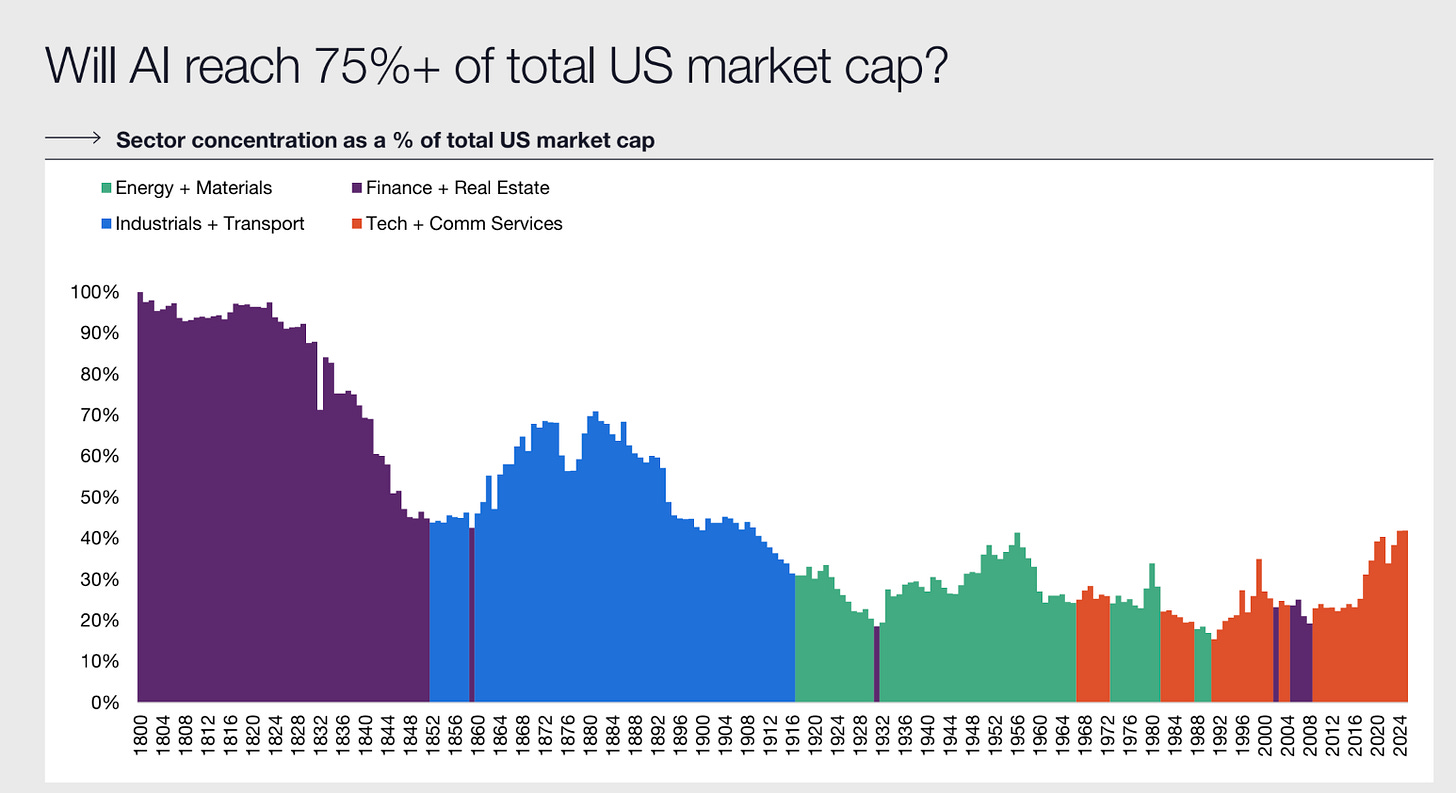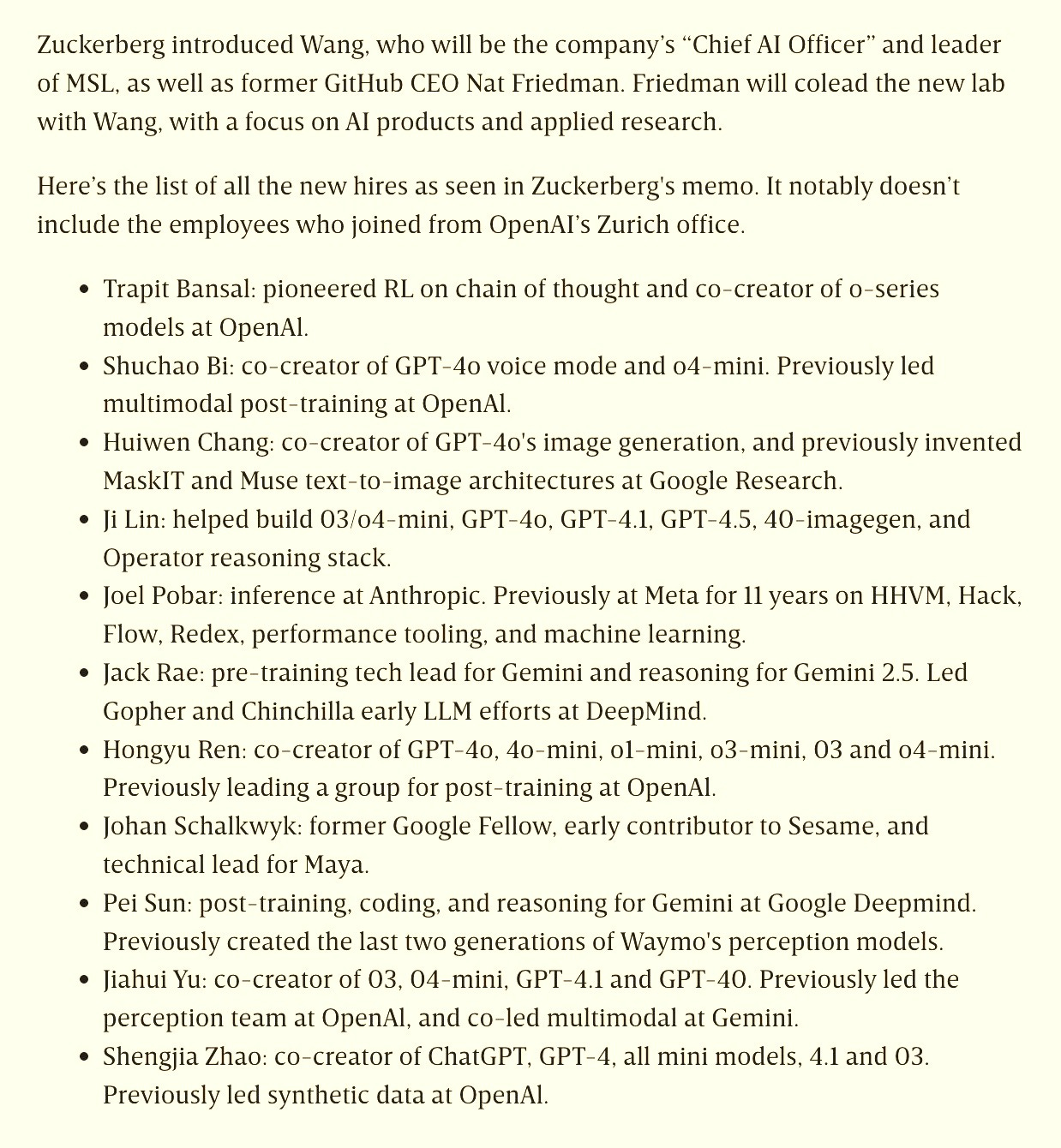TWS #014: AI's Supercycle; $1M Math problem; China's AI ambitions; Research Labs are the new Football Clubs; Tokenized Stocks; Strava - Scaling to 100M+ users
and much more...
Every week, get the latest curated high signals on news, insights, and ideas around technology, science, and business to help you become a better builder and thinker. Please fill out the survey so we can deliver the best content to your inbox. Thanks for reading!
Did you know...
In 1984, a Soviet computer scientist (Alexey Pajitnov), created Tetris as a side hustle at Moscow’s Academy of Sciences. He designed the addictive puzzle game inspired by pentominoes, where falling blocks must be arranged to clear lines. Intended as a test of programming skills, Tetris spread virally among Soviet programmers, copied onto floppy disks and shared informally, as commercial distribution wasn’t possible in the USSR’s state-controlled economy. A Dutch entrepreneur Henk Rogers spotted Tetris at a 1988 trade show. Recognizing its potential, he tracked down Pajitnov, navigating a bureaucratic maze to secure licensing rights as the game was State property. Eventually, the persistence paid off when he partnered with Nintendo, securing Tetris for the Game Boy in 1989. The handheld console, bundled with Tetris, became a global sensation, selling millions and cementing the game’s cultural legacy. Pajitnov, however, earned no profits initially due to Soviet laws, only gaining royalties after co-founding The Tetris Company in 1996 post-USSR collapse.
Here’s this week’s scoop:
Is AI going through a supercycle? — Coatue’s EMW 2025 public/private report
China’s AI ambitions and its Industrial Policy for AI
Cloudflare: Charging AI players for content scraping
Meta poaches AI heavy hitters in Super Intelligence push
Microsoft: The dawn of Medical Superintelligence — can AI diagnose better than doctors?
Robinhood and others offer world-first tokenized stocks
Google DeepMind partners with a Mathematician to solve $1 million problem
Let’s dive in.
🎧 Podcast: How Strava scaled to 100M users
In this episode, we discuss Strava’s origin story and how it got its name, we talk about the early days of the company, and learn about their interesting growth strategy and how they got their first customers. Also, we speak about the founder mindset and what it takes to build an enduring company, the inch-wide-mile-deep strategy, effective daily routines, and much more!
Inside: full timestamps and curated conversation highlights in Q&A format — a lot of nuggets in this one!
🔥 Nuggets for the Road
2024 State of AI Report (ICONIQ Capital) — the Builder’s Playbook [LINK]
How AI/LLMs are powering innovation/research (McKinsey) — a tool to accelerate scientific research — will dive into this in the next edition [LINK]
When do we stop finding new music? (
) — resonated with this one as my music tastes/preferences have definitely reached maturity. [LINK]B2B Startups: Unblock any bottleneck with these 5 Frameworks () — worth a read if you’re struggling to gain traction [LINK]
Figma is going Public [LINK]
YC Startup employee gets exposed — this is a huge symptom of how remote work has negatively impacted the hiring industry. Everything is so easy to fake nowadays, i.e., résumés, LinkedIn/X profiles, etc. It's not the last time this will happen, so it's crucial to have community support to sniff these people out. Nobody likes a snitch, but in these cases, snitches are the heroes who make the playing field fair for everyone. Update: he finally gave an interview on TPBN as to why he did what he did.
📡 The Signal
Coatue: EMW 2025 — the current state of technology innovation across Public and Private markets
[LINK]
My key takeaways:
Tech innovation happens in cycles from mainframes, PCs, and the internet, to mobile, and now AI. Each wave brings in new market leaders and disrupts the incumbents. But the current AI wave might have a much broader and deepr impact, which should be much greater than all the previous tech revolutions that came before it.
This is why: AI is creating a productivity flywheel effect for itself and the industries it touches. This ultimately results in higher GDP growth, lower debt, and more abundance. There are some questions around job displacement, and we’re only at the early stages of this cycle.
No product in tech has scaled like ChatGPT, a clear hockey stick moment. The chart shows it hitting over 1 billion monthly active users in just two years, outpacing even he fastest-growing consumer apps of the past. It shows that the right AI application can become a platform-level business almost overnight.
Now, the market is more concentrated in tech than ever before, raising questions about sustainability and the potential for AI to further this dominance.
Previously, there were questions about whether AI was just a hype cycle, but it’s now becoming clearer that it’s not. It’s still early, but there is some truth that AI is becoming more valuable and useful than predicted. We’ve seen its impact on a number of industries already, and it’s only going to get bigger.
A new bunch of AI-driven companies is starting to outperform. Don’t assume that today’s giants will dominate tomorrow. Each innovation cycle brings in new leaders.
China’s AI ambitions and its Industrial Policy for AI
It’s now clear that China is supporting AI development across chips, models, and applications. Local governments are also helping through AI labs and pilot zones. The private tech giants like ByteDance and Alibaba still continue to drive innovation, but State subsidies and policies significantly amplify their competitiveness. Also, Chinese AI models are now narrowing the gap with US counterparts, especially in EVs, robotics, healthcare, and biotech. But the US still attracts over 10x the private investment, which is a huge gap in China. There’s a much bigger reliance on state-level support in China, which probably means the government is hyper-focused on AI. [LINK,
]The visual below shows China’s AI tech stack and industrial policy initiatives
Cloudflare: Charging AI players for content scraping
Cloudflare, one of the world’s largest Content Delivery Networks (CDN), is warning that AI crawlers and summarizers are disrupting the internet’s business model by slashing publisher traffic and revenue. Here’s why: as more users trust AI-generated summaries (like Google’s AI overviews), they bypass original content, reducing clicks to websites. Some quick stats:
Google now crawls 18 pages per visitor (from 2:1 a decade ago)
OpenAI scrapes 1,500 pages per click
Anthropic scrapes 60,000:1
All of this starves content creators of ad revenues and subscriptions. This is now threatens the incentives to produce quality content, risking misinformation as users now rely on potentially inaccurate AI outputs. Cloudflare is now developing tools that trap unauthorized crawlers and eventually will allow publishers to block non-paying AI bots. But that begs the question: if your content is no longer AI-crawlable, what are the chances it will be exposed to the right people in the first place? [LINK]
Meta poaches AI heavy hitters in Super Intelligence push
Meta officially launches their Superintelligence Labs (MSL). This is on the back of their recent acquisition of Scale AI a few weeks ago — their goal is to reach AGI as quickly as possible. Because of this, Meta has been on a lucrative hiring spree, headhunting rivals from OpenAI, Anthropic, and Google. It’s clear Zuck has been frustrated with their AI progress, especially their Llama models. Finally, here’s something to think about: this is one of the few moments where folks across some of the most notable AI companies, i.e., Anthropic, Meta, Google, OpenAI, and ScaleAI, will be coming together and collaborating. Previously, all of these people were more or less siloed due to competitive pressures, which most likely didn't enable for sharing of information. Whether this is a good or bad move by Meta remains to be seen, but I can tell that these folks will be chatting and sharing insider information in the breakout rooms, along the corridors, etc., on what worked and what didn't from their previous experiences. What comes out of this will be new learnings, discussions, paradigms, and discoveries. Let's see what happens...[WIRED]
Note: Research labs are the new football clubs. I’m waiting to see the next transfer… 😂
Microsoft: The dawn of Medical Superintelligence — can AI diagnose better than doctors?
Microsoft has released something called MAI-Dxo (Diagnostic Orchestrator), which is a system that diagnoses complex medical cases with 85% accuracy, outperforming human physicians’ 20% accuracy on 304 case studies. The way it works is that MAI-DxO emulates real-world clinical reasoning by analyzing symptoms, ordering tests, and refining diagnoses, just like a virtual panel of expert doctors. This could address the rising demand for medical advice across search, with 50 million health-related searches daily. All of this still has to go through clinical trials, which could take years before it’s FDA-approved. Even if the tech is ready, it’ll have to go through biases and regulatory red tape. Regardless, it’s an incredible step in the right direction, and something AI can cause some real and positive disruption. [LINK]
The visual below shows MAI-DxO (purple) outperforming other models across diagnostic accuracy (y-axis) and average cost of test (x-axis). The red cross represents the average accuracy of 21 Practicing Physicians in the test.
Tokenized Stocks Take Off!
Crypto is making a big comeback, and it’s actually in a meaningful way (let’s hope!). In just a few days, Kraken and Bybit, along with Robinhood, announced listings of tokenized stocks. These are Solana-based tokens, based one-to-one on real shares. It’s a similar mechanism to how Stablecoins work, where each coin is backed by real fiat dollars. With token stocks, you can now own a fraction of a company with near real-time on-chain settlement and 24/7 trading. These are all features that traditional trading couldn’t match. Robinhood are doing something similar, but instead of going for public stock tokens, which are also available, they’re also targeting high-growth private companies, i.e., OpenAI and SpaceX. This now means you can own private companies opening up the private markets and secondaries to a massive retail market. It’ll be interesting to see how Coinbase responds and also how the entire crypto user base responds. We’re finally starting to see some good come out of this new wave of crypto. [LINK, CNBC, ROBINHOOD]
Google DeepMind partners with a Mathematician to solve $1 million problem
It’s called the Navier-Stokes equations, one of the seven Millennium Prize Problems offering a $1 million prize for the solution. In its most simplistic form, the equations (created in the 19th century) describe fluid motion like water, air, or blood. You can imagine a river: the equations predict how water curves around rocks and speeds up in narrow sections. They account for forces like gravity or wind pushing the fluid and internal friction slowing it down. The equations have been vital for designing airplanes and predicting weather patterns. BUT, they are hard to solve because fluids are unpredictable. Google is now teaming up with Javier Gómex Serrano to work on this and using DeepMind’s AlphaEvolve system to accelerate progress on this. If solved, the implications would be groundbreaking. You would be able to predict with accuracy the path and trajectory of any fluid in any medium. You should watch this video from Numberphile to learn more. [LINK]
🧐 Poll of the Week
This week’s poll:
Last week’s poll:
Have you begun using AI in the workplace?
83%: Yes, it’s making me more productive
17%: Yes, but I don’t see the benefits
0%: No, it’s not allowed
0%: No, but I’m eager to get started
If you liked this, here are a few more popular posts:
🙋🏻♂️ Survey
To build the best newsletter for you all, I’d love to get some feedback. If you have some time, please fill out the following survey.
🤩 Deals, Discounts & Affiliates
You can find carefully selected offers and deals here.
🙏🏼 Connect with Me
Are you new to the newsletter? Subscribe Here
Check out my YouTube channel (and subscribe!)
If you’re a founder, apply here (Metagrove Ventures) for startup funding or contact me directly at barry@metagrove.vc
If you think this could be helpful and informative to others, please share it :)
Thanks for reading, and see you next week!
Barry.

























Thanks for including my Unlock The Bottlenecks artical. It's from my BrainDumps Series which is all part of my new Book 📚 - Coming Soon! I have 200+ in circulation & publish them here every week BUT on Substack I go further for Founders looking for Actionable Insights on how Grow, Run or Raise Money 💰 Love your newsletter & so I'm stoked to be included 🌟